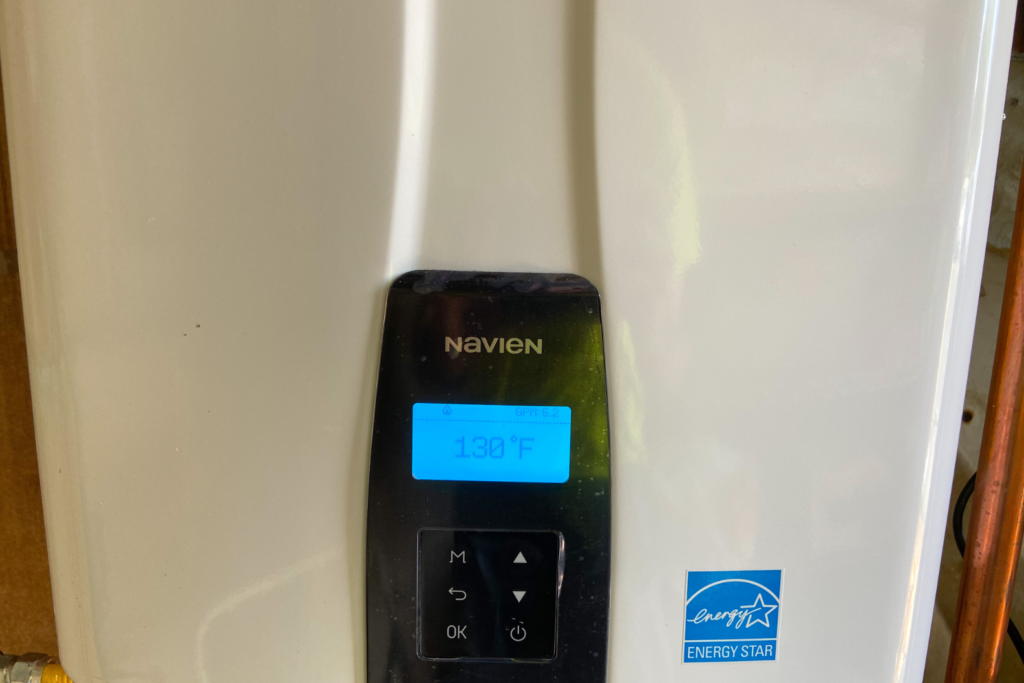If you were to think about plumbing components that you use on a daily basis, it’s safe to say there could be a wide variety of answers to that question. Toilets, faucets, showerheads, bathtubs, the list goes on. However, for several of these things to work, you’re going to need a properly-functioning water heater too, right? A water heater is the perfect example of a plumbing fixture that homeowners and facility managers rarely think about, unless something were to go awry. And in most cases, assuming you have a quality brand installed that is the correct size and gets the routine maintenance needed, you won’t have to worry about it very often. Granted, it’s also important to note that water heaters aren’t built to last forever either and will eventually need to be replaced simply as a result of the everyday wear and tear.
In this week’s blog post, we’re going to take a look at a particular type of water heater that has continued to become more and more popular. This water heater type happens to be the tankless water heater. While storage tank water heaters still tend to be the more common of the two, there’s no doubt that tankless water heaters offer some unique benefits that catch the eye of homeowners and commercial facility owners alike. Throughout this blog post, we’ll discuss some of these advantages and hopefully help you determine whether or not it makes sense to invest in one for your home or facility.
Longer Lifespan
As we begin this blog post, I would like to mention that tankless water heaters are generally more expensive than their storage tank counterparts. As a homeowner or facility owner, it is your job to weigh the advantages they provide and determine whether they make up for the increased cost of installation. With that being said, one of the reasons why many homeowners consider having a tankless heater installed is simply because they have a longer lifespan. While every situation is different, you can typically expect to get 10-12 years out of a storage tank water heater. Keep in mind that we’ve seen storage tank water heaters get replaced in shorter time frames than that, as well as ones that last much longer. On the flip side, with a tankless water heater, you’re typically looking at a lifespan of 20+ years. Again, just as is the case with storage tank water heaters, this is under the assumption that it’s made by a reliable manufacturer, correctly sized and receives the needed maintenance to keep it running.
Less Space Occupied
While you’ll often see water heaters installed in basements (and likely in an unfinished part of the basement), there’s no denying that storage tank water heaters do occupy a little bit of space. It isn’t a huge amount of space required, but it is something worth keeping in mind. However, when it comes to tankless water heaters, you’ll notice that they are simply attached to the wall. This will immediately save some space. Not to mention, even though appearance probably won’t play a role in your water heater purchasing decision, it doesn’t hurt to note that many of the major tankless water heater brands do have units that are quite aesthetically-pleasing!
Don’t Forget About Maintenance
In the section above discussing a water heater’s lifespan, one contributing factor that we mentioned was in regards to whether or not the water heater received the proper maintenance throughout its lifespan. Given that Kansas City has hard water, this can cause issues with your plumbing system, including your water heater. No matter if you have a storage tank water heater or a tankless water heater, you’ll want to follow proper maintenance practices to ensure you get a solid return on your investment. Just as we’ve referenced on several prior blog posts, one of the best maintenance tasks for your water heater is going to involve flushing it. This is done with the intention of eliminating mineral build-up that will inevitably occur in the water heater. As for the frequency of performing this integral maintenance task, we generally recommend doing so on an annual basis at a minimum. This will go a long way in keeping everything running like normal and limiting the odds of your water heater breaking down earlier than expected.
Efficiency
In addition to cool features and better looking plumbing fixtures, many of the major plumbing brands have also consistently improved the efficiency levels of their products. An easy example of this would be modern day toilets using much less water per flush in comparison to some of the older toilets. This is not only beneficial for a homeowner, as it results in lower water bills, but it is also good for water conservation efforts too. This same gradual improvement on efficiency has been no different with water heaters. Water heater brands have found ways to make their products more energy-efficient and tankless water heaters are able to take that a step further.
The main explanation as to why tankless water heaters offer this increased level of efficiency directly coincides with the fact that they’re often referred to as “on-demand” water heaters. In other words, they’re only heating the water when it’s actually needed. In essence, as long as your tankless water heater is properly sized for your home, you shouldn’t run out of hot water and it will heat the water whenever a tap is opened. For comparison purposes, with a traditional storage tank water heater, you have a tank that fills with water and is then heated (either by means of natural gas or electricity). In terms of efficiency, the potential downside (with storage tank water heaters) that you need to consider is the standby heat loss. Unsurprisingly, the heated water inside the tank can’t stay hot forever and if left unused for periods of time, you’ll inevitably have some heat loss. When it comes to efficiency, this is one of the biggest differences between the two.
Pricing
Without a doubt, one factor that will likely play into your water heater decision is the total price for the installation. At the end of the day, you’re wanting a water heater capable of completing its number one responsibility: providing hot water. That is a no brainer, right? Well…we’ve already referenced the pricing differential on this blog post, but I did want to wrap up everything by mentioning it one final time. When it comes to the initial installation cost, tankless water heaters are going to be more expensive than traditional storage tank water heaters. With this, you receive each of the advantages featured throughout this blog post (including potential cost savings from the improved efficiency), but we also wanted to mention that tankless water heaters require a slightly more complex installation process. As such, some interior layouts are more accommodating for a tankless heater than others. If you’re unsure on where a tankless water heater could be installed in your home, don’t hesitate to give our team a call and we can take a look!
Tankless Water Heater Repair, Installation and Maintenance Services in Kansas City
Given that tankless water heaters have gradually grown in popularity, it’s no surprise why they’ve also become something that our plumbing technicians routinely work on. Despite coming at a higher price tag, this blog post has outlined a few advantages of them that are certainly quite appealing. Our team at Stine-Nichols Plumbing is here to assist you with all of your tankless water heater needs. Whether that be installing new tankless water heaters, repairing existing ones or even providing routine maintenance services, don’t hesitate to give us a call if you’re needing some help.
To request a free estimate, you’re more than welcome to give us a call at (816) 348-3481 or fill out the form linked HERE. We look forward to answering any questions you may have about tankless water heaters.


